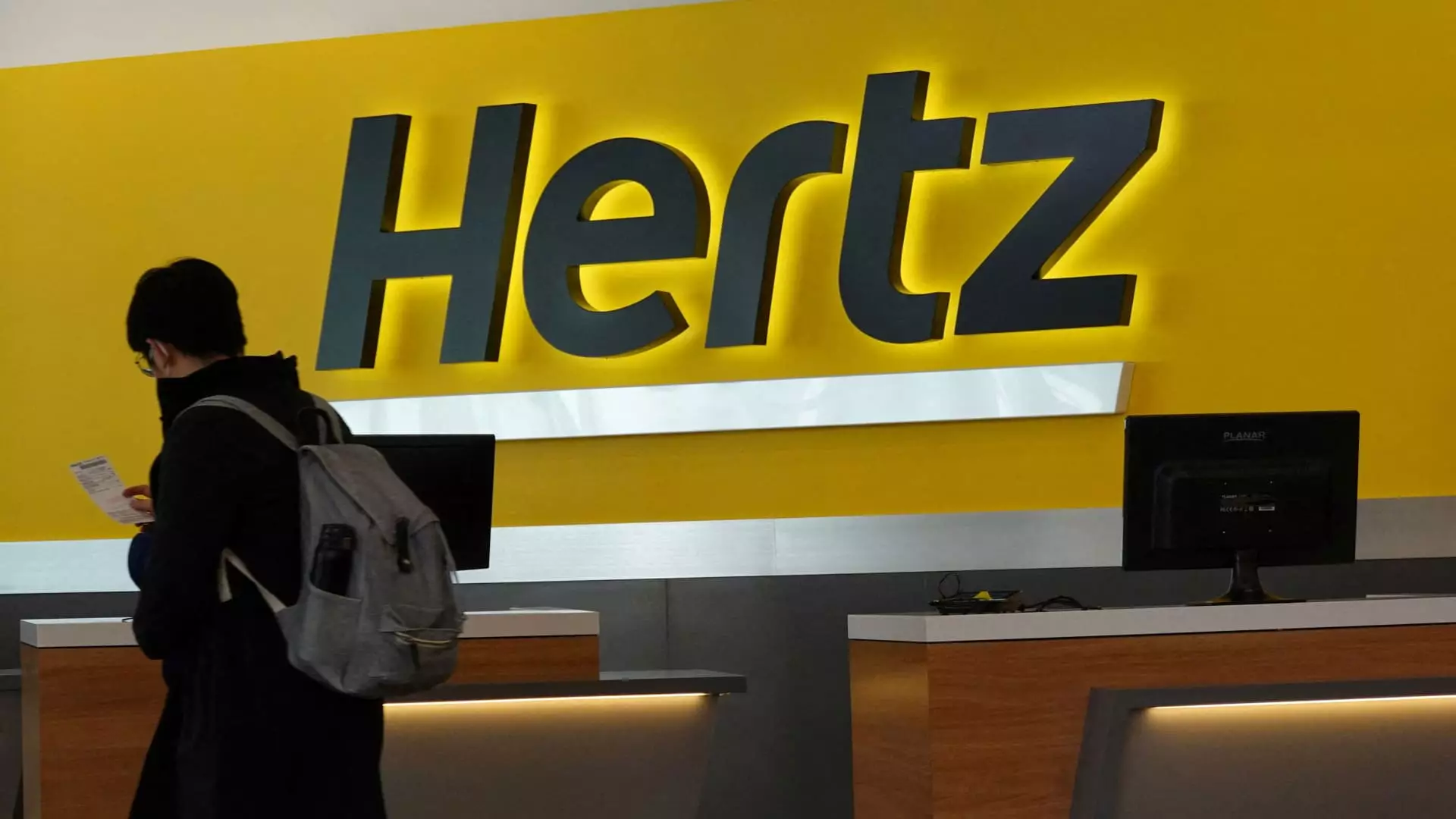The road ahead for Hertz Global Holdings is anything but smooth, as evidenced by the jaw-dropping nosedive its stock took after the company released disappointing first-quarter earnings. In a market already rife with uncertainty, Hertz’s results signaled a larger malaise within a once-stalwart enterprise of the rental car industry. Overnight, shares fell by more than 20%, ending the day down nearly 17%. For a company already navigating turbulent waters, this steep decline raises critical questions about its viability and leadership in an increasingly competitive landscape.
Hertz’s woes stem not just from its bottom line—where the company reported a loss of $1.12 per share against an anticipated loss of just 97 cents—but also from its ambitious plans to raise $250 million through a stock offering. This raising of capital amidst erratic earnings can often alarm investors, suggesting deeper structural problems rather than mere operational bumps in the road. The specter of a stock offering typically points to a company scrambling for liquidity rather than embarking on a growth trajectory.
Challenges In a Shifting Landscape
As Hertz grapples with disappointing revenues, the factors affecting its performance are numerous and complex. The sagging demand for car rentals, alongside the residual impact of tariffs imposed during the Trump administration, has created an adversarial climate for rental giants like Hertz. The decision to reduce the vehicle fleet, which was down 8% compared to last year, underscores a strategic withdrawal rather than proactivity in enhancing customer experience or service diversity. This approach, branded as the “Back-to-Basics Roadmap,” entails squeezing profits from a less expansive inventory while attempting to optimize vehicle utilization.
However, the irony here is palpable. In a world where consumer sentiment and travel are declining, the idea of creating “more demand than we can satisfy” seems less a strategy and more a desperate aspiration. The rental car industry has long relied on spontaneity and accessibility, but now it feels increasingly constrained. By focusing predominantly on cost-cutting measures, Hertz appears to be sacrificing its potential revenue growth, showcasing a shortsighted vision rather than a robust operational strategy.
Investor Concerns and Reactions
Investor reactions to Hertz’s recent moves reflect a broader skepticism regarding the company’s long-term potential. Barclays analyst Dan Levy characterized the quarterly results as “net negative,” emphasizing that while Hertz is attempting to accelerate its transition strategy, the overarching risk remains one of consumer demand. This raises a pivotal question: how can Hertz hope to optimize profits when the market it serves is contracting? The reliance on investor interest from figures like Bill Ackman, who holds a significant stake, feels precarious in light of the company’s shaky foundations. Dependency on one major investor, regardless of their clout, leaves Hertz vulnerable to shifts in stock market sentiments or strategic misalignments.
Moreover, the economic landscape has been increasingly inhospitable for travel-related businesses. Lower consumer confidence, compounded by political and economic turbulence, underscore the alarming trend of dwindling bookings. For Hertz, every challenge feels magnified as the company attempts to negotiate the lost ground against not just competitors but also against the shifting tides of consumer behavior.
The Path Forward: A Fragmented Vision
Hertz’s ambitions to bridge the gap between lost revenue and operational sustainability now stand in stark contrast to its current realities. The company’s PR glosses over the substantial hurdles it faces, such as achieving lower depreciation rates and favorable operational expenses by the end of the second quarter. While optimism is often the name of the game in corporate America, the difference between hopeful projections and grounded realities can be vast. The “improved earnings profile” touted by Hertz’s CFO rings hollow when weighed against consistent underperformance, leading stakeholders to wonder if they are simply being sold a dream—one that lacks a clearly defined path.
In this charged environment, the fallout from Hertz’s missteps resonates on multiple fronts, raising critical discussions about effective management, market adaptation, and the broader economic indicators at play. For leaseholders, employees, and stakeholders alike, the question looms large: can Hertz adapt quickly enough to reclaim its standing as a leader in the rental car market, or is it just another casualty of an unforgiving economy?

